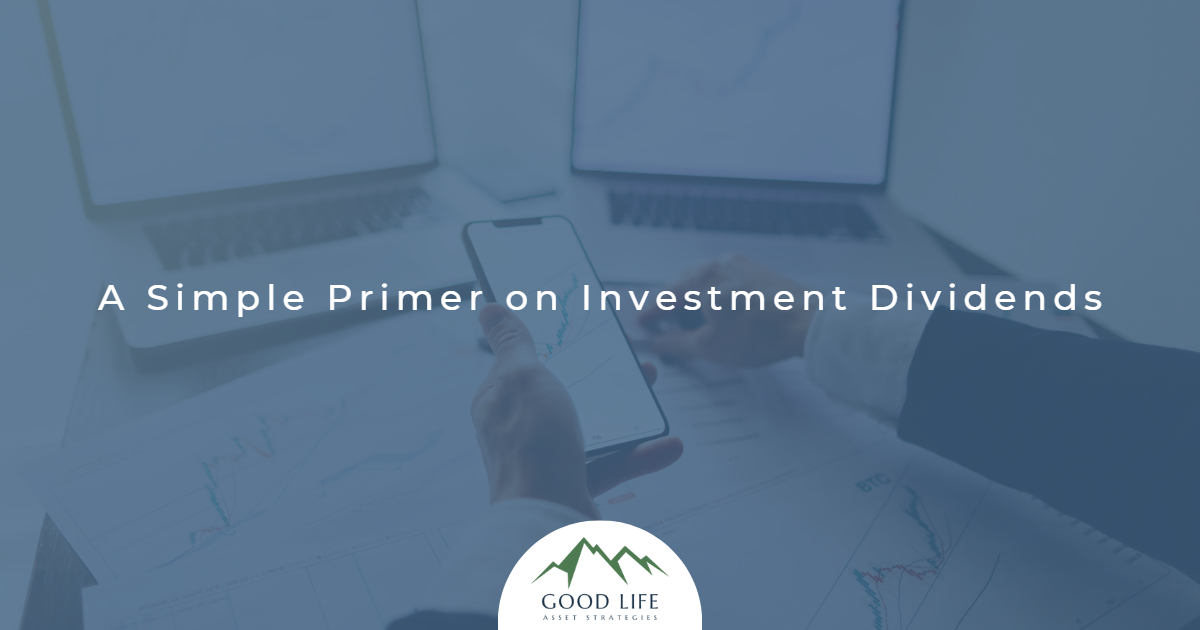- 817-864-8560
- justin@g-las.com
- Mon - Fri: 9:00am - 5:00pm

In order to become an experienced investor, it is important to learn the ins and outs of investment dividends.
Learning the language will help you think more like an astute investor. We’ve introduced you to the most important investing terms. Today, we’re looking at investment dividends:
When you invest in a company, you become a shareholder and own a small piece of that company. As a shareholder, you have the potential to earn money through the company’s profits.
One way to earn money from your investment is through cash or stock dividends.
Investment dividends are payments made by a company to its shareholders out of its profits or reserves.
Companies that pay dividends are usually mature and stable. They are consistently profitable and have enough cash on hand to distribute some of it to shareholders. Companies in growth industries or startups usually reinvest their profits back into the business instead of paying dividends.
The amount of dividend you receive depends on the number of shares you own and the dividend per share. If a company pays a $0.50 dividend per share, and you own 100 shares, you will receive $50 in total.
Dividend payments are not guaranteed, and companies can choose to reduce or eliminate them if they experience financial difficulties. Research the company’s financial stability and track record before investing. This is important to ensure that they have a strong history of paying investment dividends.
Dividends can be a reliable source of income for investors. This is especially true for those who rely on their investments for retirement or other financial objectives. Dividends can also help to reduce the impact of market fluctuations on your investment portfolio.
In addition to providing income, investment dividends can also indicate the financial health and stability of a company. A company that consistently pays dividends is usually well-managed and has a solid financial foundation. On the other hand, a company that cuts or eliminates its dividends may be experiencing financial difficulties or facing other challenges.
Beware of the promise of high dividend yield. A 15 percent annual dividend may look tempting, but is typically not sustainable. It usually happens when a company’s stock price falls. If a normal yield suddenly looks too good to be true, it probably is.
Our advice: do your homework when scanning for dividend paying companies. Select only those that are financially stable and have an excellent history of delivering consistent and growing dividends. Reach out to us if you need help finding good dividend paying companies or exchange traded funds for your portfolio.
Good Life Asset Strategies, LLC is a registered investment advisor located in Fort Worth, Texas. Good Life Asset Strategies, LLC and its representatives are in compliance with the current registration and notice filing requirements imposed upon registered investment advisors by those states within which the firm maintains clients.
All information herein has been prepared solely for informational purposes, and it is not an offer to buy or sell, or a solicitation of an offer to buy or sell any security or instrument or to participate in any particular trading strategy. Such an offer can only be made in the states that Good Life Asset Strategies, LLC is either registered or a notice filer or an exemption from registration is available under the securities laws or other laws.
Certified Financial Planner Board of Standards, Inc. (CFP Board) owns the CFP® certification mark, the CERTIFIED FINANCIAL PLANNER™ certification mark, and the CFP® certification mark (with plaque design) logo in the United States, which it authorizes use of by individuals who successfully complete CFP Board’s initial and ongoing certification requirements.